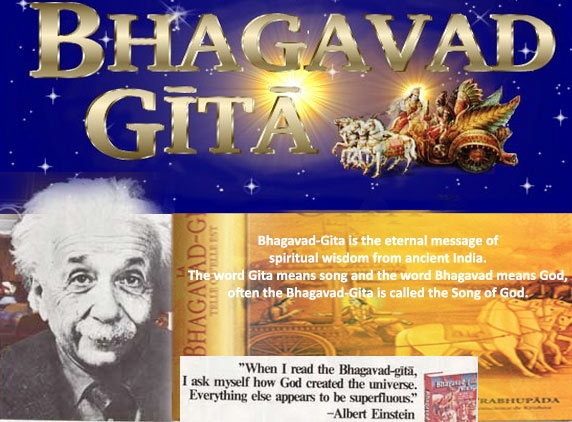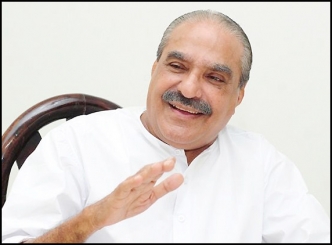Bhagavad Gita- Indian Song of human values with global appeal: Wishesh Analysis
December 22, 2011 15:42
The Bhagavad Gita controversy, most unwanted issue, neglected by the union government and supported by a set of clergy fearing unforeseen competition has almost put a droplet of venom in the decades old milk of friendship between India and Russia. On several occasions statesmen from both the countries shared the same dais to share their common feelings on various issues and synchronized too.
Russian National Sergey S Avanesov in the City of Tomsk in Siberia had in June moved a motion in the Leninsky District Court asking for a ban on the third Russian edition of the Bhagavad Gita as printed by International Society for Krishna Consciousness.
The controversy over the status of the 3,000- year old Scripture Bhagavad Gita, doubtless owes much to the gap in knowledge by interpretors. It is really pity that the Russian authorities have sent the book for examination to people who lack either the knowledge or the logics to assess background of circumstances about the book in depth. True these academicians hoard their supremacy in their own academic domains. And can scrutiny books pertaining to modern science, which proves its theory by empirical observations. But the Bhagavad Gita is a text of information given by higher forms of intelligence.
Earlier Russia expressed sadness over the development, saying it is “inadmissible” that a holy scripture is taken to court. But ISKON had been warning the union government about the clergy interference and about the controversy that might spring up eventually. Since the warning letter, India has had six of its ministers and top officials visit Russia, culminating in Manmohan Singh's own visit from December 15 to 17 for a bilateral summit with Russian President Dmitry Medvedev. But still the issue persists, where or what do we lack in pulling up for a genuine case?
ISKON- Russia had come on the radar of the authorities in Moscow, during the communist rule. But the communists who always respected the worldly religious values did nothing to hurt our sentiments. In Russia, after the demise of the Communist state, it won’t be the authorities who would worry on the Gita but notables or followers of the local clergy, who might perceive competition.
For a few who have misinterpreted the holy book, have designed a venomous propaganda saying the book is `extremist literature.’ What a disgrace to the centuries old belief of the ancient civilization on this earth. The Indian government at least now woke up about the issue after tremendous uproar in both the houses by the one and all.
At last the External Affairs Minister SM Krishna said that the complaint seemed to be the handiwork of "some ignorant and misdirected or motivated individuals...While this complaint is patently absurd, we have treated this matter seriously and the Embassy of India (in Moscow) is closely monitoring this legal case." And the government asked the Russian government to drop case against a translation of the Bhagavad Gita.
"It is strange that such events are unfolding in the beautiful University City in Siberia, as Tomsk which is famous for its secularism and religious tolerance," Alexander M Kadakin, Russian Ambassador in India said in a statement. "The Russian authorities have been approached at high levels to appropriately resolve this matter," said Indian Ambassador to Russia Ajai Malhotra.
The final hearing on the issue is scheduled for December 28 in Siberia, as it agreed to seek the opinion of the Russian Ombudsman on Human Rights in Tomsk Region and of Indologists from Moscow and St Petersburg, all of whom favor dismissal of the case.
The ban on the book must be revoked and the book must be given a special status across the globe. The holy book has impressed and inspired many who hail from different backgrounds across the world.
Some interesting features that might interest the readers about the Holy Scripture are detailed below:
• The Mahabharata has no restrictions of qualification as to who can hear it or read it. Everyone regardless of caste or social position may hear or read it at any time. The original writer Vedavyasa has explained that the Mahabharata contains the essence of all the purports of the Vedas. This we see is true and it is also written in a very intriguing and dramatically narrative form.
• Originally written in Sanskrit, the book has been translated into many languages. A few translations have been listed below. The first English edition of the Bhagavad-Gita was in 1785 by Charles Wilkins in London, England. This was only 174 years after the translation of the King James Bible in 1611. The Bhagavad-Gita was translated into Latin in 1823 by Schlegel. It was translated into German in 1826 by Von Humbolt. It was translated into French in 1846 by Lassens and it was translated into Greek in 1848 by Galanos.
• Historically many, very extraordinary people such as Albert Einsten, Mahatma Gandhi, Dr. Albert Schweitzer, Herman Hesse, Ralph Waldo Emerson, Aldous Huxley, Rudolph Steiner and Nikola Tesla to name a few read this book. They were inspired by Srimad Bhagavad-Gita for its timeless wisdom.
• In a gist the holy book details accurate, fundamental knowledge about God, the ultimate truth, creation, birth and death, the results of actions, the eternal soul, liberation and the purpose as well as the goal of human existence.
• There are many hard examples of noted Russians who liked this philosophy from their heart and soul such as Prof. Nicholas K Roerich, and his family. This family lived nearby Darjeeling and later on established the Urusvati Research Institute in the Kullu Valley, where the family adopted the teaching of this Holy Book as a practical part of their life.
(With inputs from a cross section of internet media sites- just for reader enrichment- Aarkay)














